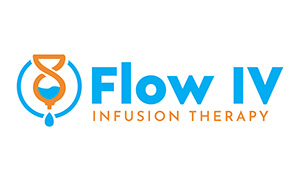Vitamin D: Illuminating the Importance of Sunshine Vitamin
Vitamin D, often referred to as the “sunshine vitamin,” plays a crucial role in maintaining our overall health and wellbeing. Known for its unique ability to be synthesized by our bodies through exposure to sunlight, this important nutrient has garnered increasing attention over the years. Let’s explore why this vitamin is so vital and how we can ensure we’re getting enough.
Function and Benefits
Vitamin D serves multiple essential functions within our bodies.
First and foremost, it plays a key role in maintaining strong and healthy bones. It facilitates the absorption of calcium and phosphorus from our diet, thus promoting mineralization and growth of bone tissue. This makes it crucial for the prevention of bone-related conditions such as osteoporosis and rickets.
Beyond bone health, vitamin D has been linked to various other benefits. It supports the proper functioning of our immune system, aiding in the defense against infections, and reducing the risk of chronic diseases such as cardiovascular diseases, certain cancers, and autoimmune disorders. Additionally, studies have suggested a potential correlation between optimal vitamin D levels and improved mood, mental health, and cognitive function.
Sources of Vitamin D
While our bodies can produce vitamin D when exposed to sunlight, it can also be obtained from dietary sources. The two primary forms of vitamin D are D2 (ergocalciferol), derived from certain plants and fungi, and D3 (cholecalciferol), found in animal-based products.
Sun exposure is a significant source of vitamin D. When the UVB rays from the sun interact with the cholesterol in our skin, it triggers the synthesis of this essential nutrient. However, factors such as geographical location, time of year, sunscreen usage, skin pigmentation, and age can impact the amount of vitamin D produced. Therefore, it is advisable to spend a sensible amount of time in the sun to ensure adequate production while balancing the risk of UV radiation.
Fatty fish, such as salmon, mackerel, and sardines, are excellent dietary sources of vitamin D3. Other sources include fortified dairy products, eggs, cod liver oil, and certain types of mushrooms. However, it is worth noting that it can be challenging to obtain sufficient vitamin D through diet alone, especially for those with specific dietary restrictions or limited sunlight exposure.
Supplementation and Testing
Given the challenges associated with obtaining optimal vitamin D levels through sunlight exposure and diet, supplementation becomes a common practice. Vitamin D supplements are available in both D2 and D3 forms, with the latter being more efficiently utilized by the body.
To ensure adequate levels, healthcare professionals may recommend vitamin D testing. A simple blood test can determine an individual’s vitamin D status, guiding the appropriate course of action. However, it is crucial to consult a healthcare provider before initiating any supplementation.
Vitamin D undeniably holds a crucial role in maintaining our overall health. From promoting strong bones to supporting immune function and contributing to mental wellness, its benefits are far-reaching. While sunlight and certain dietary sources can provide vitamin D, supplementation may be necessary for some individuals. Remember, embracing a holistic approach to health involves understanding the importance of vitamin D and taking necessary steps to ensure optimal levels for a vibrant and active life.

